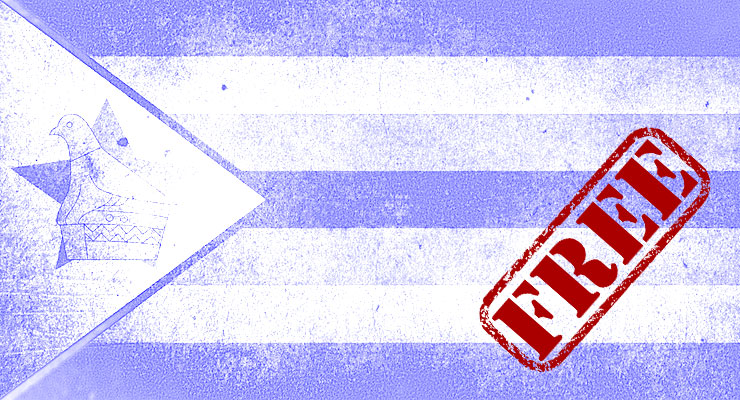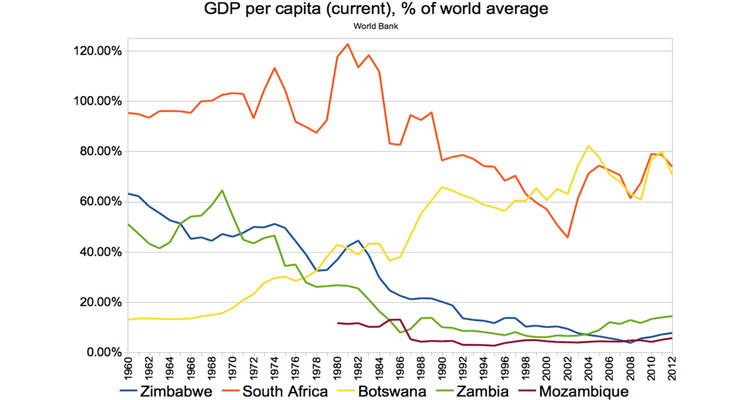
Written January 5th
This year marks 38 years of Zimbabwe independence from Britain. Until last year’s coup that resulted in the resignation of Mr. Robert Mugabe, stagnation, both political and economic, has been the hallmark of a country where little has changed for decades, even as the country embarked on an ambitious land reform in early 2000.
Until now.
This year’s harmonized elections with the presidential election, the most exciting in living memory, promises an upheaval. Zimbabwe African National Union Patriotic Front (ZANU-PF), which has held power since independence could be eliminated in the first round of a presidential ballot in July/August. Zimbabwean voters have no other credible choice other than the opposition MDC Alliance (a coalition of six parties) led by Mr. Morgan Tsvangirai.
The implications brought about by grand coalition insurgencies are hard to exaggerate. They are the clearest example yet of an opposition aiming for nothing short of a victory. The resulting realignment will have reverberations far beyond Zimbabwe’s borders. It could be time to wreck the liberation political parties in power throughout Southern Africa with the exception of Zambia which over two decades ago let go liberation movement led by founding Father former President Kenneth Kaunda.
Next revolution
The revolution’s proximate cause is voter’s fury at the uselessness and self-serving habit of the ruling party. ZANU-PF and President Emmerson Mnangagwa, who succeeded former president Robert Mugabe, is so unpopular because he is viewed as the same element from the previous regime. The other established opposition, Zimbabwe People First (ZimPF) so its chances sank on 1 March 2016 when it spilt with former Vice-President Joyce Mujuru who went on and established her own party the National People Party (NPP).
Further fuelling voters’ anger is their anguish at the state of Zimbabwe for instance Auditor-General reports reveal scaring levels of corruption across government departments and state owned enterprises. Much of that gloom is economic. Zimbabwe’s economy has long been sluggish; government workers are gobbling over 98 percent of total revenue crowding out productive investments that grow the GDP currently at about US$16 billion against a domestic debt of over US$13 billion.
Depending with where you get the figures, some reports say over 80 percent of Zimbabwean youths are unemployed with 13 universities and several other tertiary institutions churning out over 20 000 graduates yearly, there is urgent need for the country to refocus its energy towards schooling enterprising graduates that can at least create employment for themselves with government also acting as the enabler.
The government will have to act on high taxes and heavy regulation that thwart entrepreneurial vim who tend head abroad or to neighboring countries notably South Africa. But the crisis goes beyond stagnant living standards. Repeated false promises to turn around the economy have jangled nerves, forced citizens to migrate to other countries in search for greener pastures from South Africa, Botswana, UK., USA, and New Zealand being famous destinations.
Dragging in dealing with past atrocities such as political violence which in 2008 left over 200 mostly opposition MDC party supporters dead whilst thousands scurried for cover. Early Warning Project (2016) noted that violence has been a main strategy of government survival since independence, when ZANU-PF won elections and assumed power from Ian Smith Rhodesian colonial regime. Government violence against civilians represents an unusually high proportion approximately 75 percent, from 1997 in relation to political violence in Zimbabwe.
Gukurahundi (the early rains that washes away the chaff) of1980s that left over 20,000 mostly Ndebele speaking citizens’ dead and many more injured is exposing deep cultural rifts in the country. These issues can be expedited if the president accent to the much awaited National Peace and Reconciliation Bill on his table. Many of these problems have built up over the decades, but government has not been able to get grips with them if it were not for the pressure from the opposition and civil society.
Zimbabwe’s serious attempt at ambitious economic reform, an overhaul of civil service instigated by the Economic Structural Adjustment Program (ESAP) was rejected in the early 1990s. However, in the past two years attempts have been made to rationalize the civil service and reduce over-spending by government officers through fuel, airtime and car purchases to free resources for capital projects with the latest being the off-loading of over 3 000 youth officers who acted has gatekeepers for the toppled Mugabe regime. After decades of stasis, it is hardly surprising that Zimbabwean voters want to throw ZANU-PF out.
The opposition taps into that frustration. But they offer radically different diagnoses of what ails Zimbabwe and radically different remedies. ZANU-PF blames sanctions and other outside forces and has always promised to protect voters with home grown solutions that stimulate economic growth and improve living standards.
The opposition, especially the MDC alliance differs arguing that corruption and poor governance as to blame for the economic melt-down. They advocate that more openness and confronting the vice of corruption would make Zimbabwe stronger.
With less than eight months to go, it seems President Mnangagwa is unlikely to retain the presidency unless he is to miraculously change the fortunes of the ailing economy. But in this extraordinary election, anything could happen. Zimbabwe shook the world last year with a smart coup. It could do it again this time through the ballot.

Leave a Reply